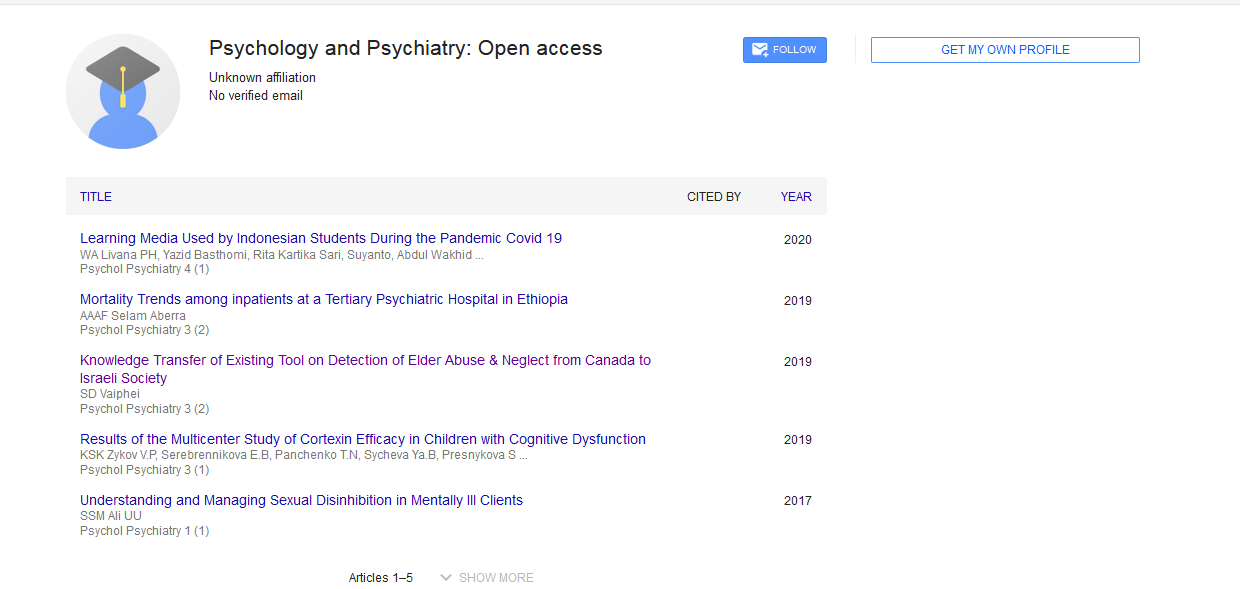Our Group organises 3000+ Global Conferenceseries Events every year across USA, Europe & Asia with support from 1000 more scientific Societies and Publishes 700+ Open Access Journals which contains over 50000 eminent personalities, reputed scientists as editorial board members.
Open Access Journals gaining more Readers and Citations
700 Journals and 15,000,000 Readers Each Journal is getting 25,000+ Readers
Xi Zhu

Xi Zhu
New York State Psychiatric Institute
Columbia University
USA
Biography
Xi Zhu is Assistant Professor at Columbia University and Research Scientist at New York State Psychiatric Institute since 2015. She has gained considerable experience in conducting translational research of trauma and PTSD. She is also interested in combining multimodal neuroimaging and computational modeling to elucidate possible pathophysiological mechanisms underlying clinical features in psychiatric disorders. During the two years of postdoc training (2013-2015) in Section of Brain Electrophysiology and Imaging at NIAAA/NIH under the supervision of Dr. Markus Heilig. She has conducted several task-based fMRI as well as resting state fMRI in addiction populations and gained expertise in developing fMRI tasks, image preprocessing and analysis as well as using machine learning to mining into large-scale imaging dataset to identify brain biomarkers. Before joining NIH, She earned her Ph.D degree in Electrical and Computer Engineering from University of Houston in 2012. Her PhD research focused on developing new methods for fMRI data analysis.
Research Interest
Identify brain network signatures of psychiatric disorders. To identify the brain network signatures of psychiatric disorders, and study genetic influence on brain activity and functional connectivity, she has conducted several resting state fMRI studies as well as task-based fMRI studies in PTSD, alcohol dependent patients, schizophrenia and children with dyslexia. Develop fMRI image analysis methods and utilize big data analytics to identify MRI-based biomarkers. To understand whether the brain network signatures of psychiatric disorders predict treatment outcome, she organized very large scale data across many different types including MRI, fMRI, DTI, genetic and clinical measurement etc., integrated these data using machine learning algorithms to construct predictive models intended for use in the diagnosis of psychiatric disorders, and predict treatment outcome.

 Spanish
Spanish  Chinese
Chinese  Russian
Russian  German
German  French
French  Japanese
Japanese  Portuguese
Portuguese  Hindi
Hindi 